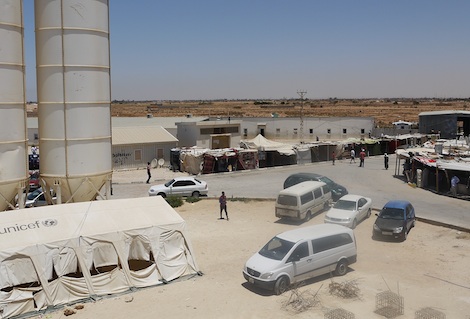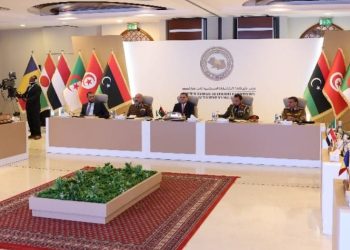By Nihal Zaroug.

Tripoli, 4 December:
Tawerghan refugees have issued an appeal to Congress to be allowed to return to their hometown “as . . .[restrict]soon as possible” and for Tawergha itself to be declared a disaster area.
The appeal followed a forum entitled “For the Return to Our City, Tawergha”, held at the Tawergha camp in Tripoli’s Janzour Naval Academy, home to more than 2,000 refugees, on 28 and 29 November.
Congress representative for Tawergha, Maree Mohamed Raheel, who attended the forum, told the Libya Herald that over the past two days, 25 Tawerghan families were evicted from a camp in Tarhouna, and are currently located at the National Congress. Raheel, who does not yet have full details about the eviction, believes that armed groups may have been responsible. However, until a proper investigation is conducted into the matter, action cannot be taken.
This negative development belittles the efforts of the forum’s organisers to find solutions, but highlights the difficulties faced by Tawerghans, and accentuates the need for concrete measures to be enforced.
Raheel, says that the National Congress is in agreement that Tawerghans should immediately return to their homes, “there is no doubt about it but securing their safety is the problem”. Armed groups stand in the way, and are contesting the power of authorities to protect displaced individuals, a problem faced not only by Tawerghans but also other displaced individuals from Ryana and Mshahya tribes.
The forum’s statement calls for swift action by government and Congress, by activating the judiciary and ending arbitrary detainment of Tawerghans in Misrata, and for the detainees to be moved to prisons elsewhere in the country.
The people of Tawergha also made appeals for reconciliation, stating “we extend our hands and open our hearts for national reconciliation to build our beloved Libya”. They expressed the need for a reconciliation authority with a clear mandate and legislative clout, whose chairman would hold a ministerial post.
Furthermore, blame is attributed to local media outlets whom Tawerghans allege have inaccurately portrayed the humanitarian crisis they endure. Following the collapse of the Qaddafi regime last August, every one of the 30,000 residents of the town fled the advancing revolutionary forces.
Tawergha, a town that has long had a bitter relationship with nearby Misrata, was broadly seen to have supported Qaddafi during the revolution, and many of its members stand accused of committing heinous crimes including rape and murder during the siege of Misrata.
Speaking to Libya Herald last month, Ali Salem Abu Jried, the coordinator of Tawergha’s town council, objects to the allegations of war crimes committed by his town, and emphasizes that the town was unable to resist the over ten thousand-strong regime troops, who occupied Tawergha in order to launch attacks against neighbouring Misrata.
The forum’s audience included congressmen, members of the Elders Committee, head of Tripoli local council’s endowment affairs and various human rights groups. These actors along with civil society groups are expected to play a greater role for the peaceful return of Tawerghans.
In pursuit of a viable solution, Raheel has developed a roadmap involving various groups and has done so in consultation with many Misratans, who want to reconcile with Tawerghans and facilitate their safe return to the town. Nonetheless, “without public debate involving both sides, moving forward will be hard”, adds Raheel.
Libyans are divided on the issue but there is growing public sentiment, that failure to assist Tawerghans amounts to collective punishment. This understanding that not all are guilty, is vital for justice and reconciliation.
By some estimates there are between 30 and 40 thousand Tawerghans displaced in Libya, mainly between Tripoli and Benghazi. Abu Jried fears that with winter, their living conditions will be worsened, as the make sift living arrangements cannot defy the elements. Last year’s cold winter, claimed lives of children in the camps.
According to Abu Jreid, some Tawerghans have tried to return home without state assistance, but were reportedly stopped by Misratan brigades who threatened to kill them and burn the remains of their houses. This is in line with findings of an inquiry conducted by Human Rights Watch (HRW) in March, establishing that Misrata militias had committed “crimes against humanity of torture and killings of Tawerghans”.
The report also states that “the destruction of Tawergha has been done to render it uninhabitable”. Raheel says that a committee to estimate the cost of rebuilding Tawergha, and other similar towns, is in the works but no estimates have been provided.
Despite mounting pressure from local groups and other international bodies, no drastic steps have been taken to end the plight of Tawerghans. The matter of internally displaced individuals needs political solutions, supported by unbiased Libyan security forces. However, without an implementable national reconciliation programme, lasting peace will not be achieved. [/restrict]









